Policy credit drives poverty reduction
This target was outlined by Nguyen Thi Hong, State Bank Governor and chairwoman of the Board of Management at VBSP, at a national scientific seminar on policy credit and its role in expediting and ensuring social wellbeing.
The event was hosted by VBSP in tandem with Ho Chi Minh National Academy of Politics (HCMA) on August 16 in Hanoi.
According to Nguyen Xuan Thang, member of the Politburo and director of HCMA, for a couple of years now, policy credit sources have supported livelihoods, constantly enhancing people’s lives and driving gender equality.
These important capital sources have also contributed to containing shark loans and the black-credit phenomena in localities nationwide, particularly those in remote, rural areas that target ethnic minority groups.
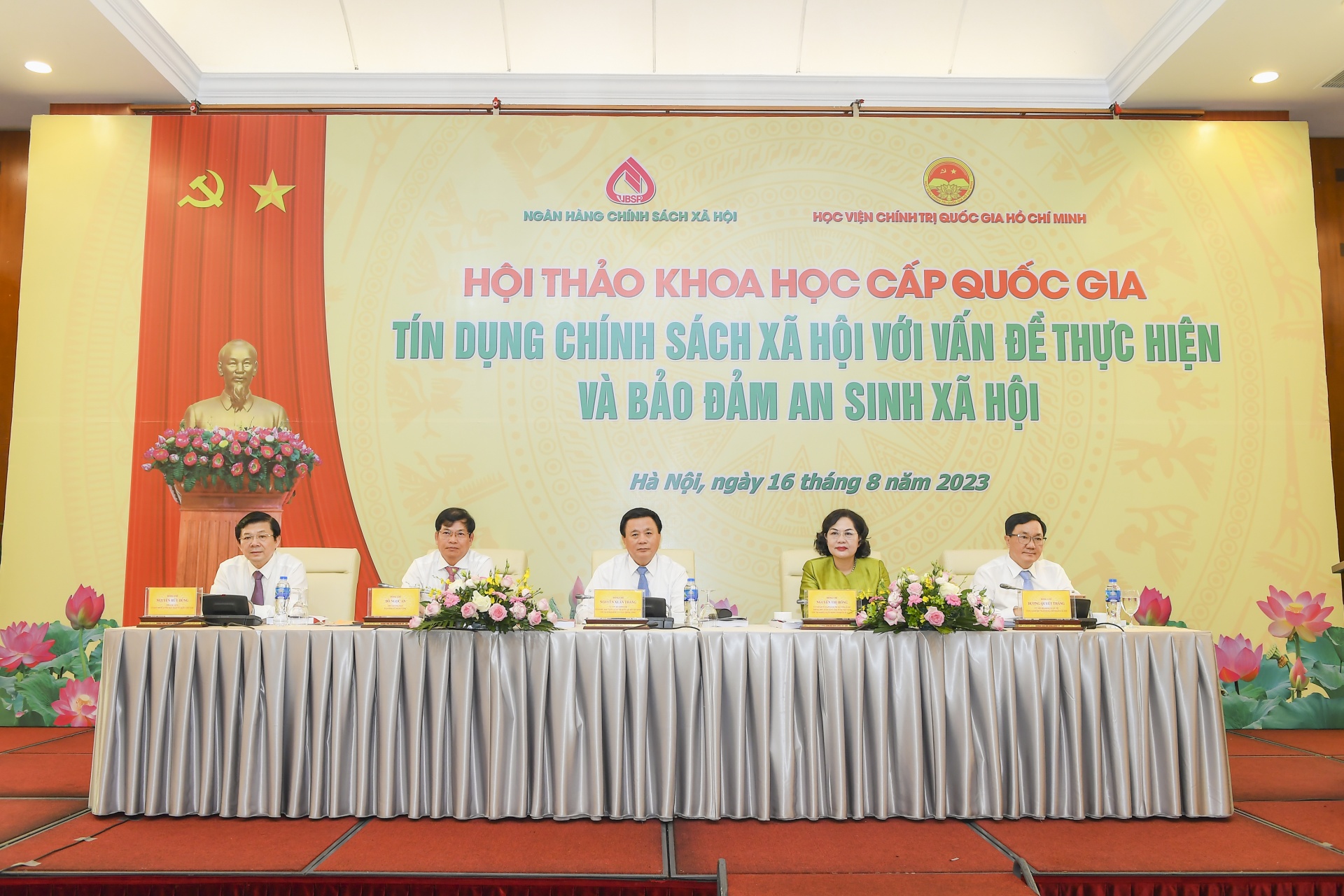 |
Policy credit schemes have been regarded as important resources, and have grown into an essential supportive component of national target programmes.
Thang said, “These capital sources have contributed to expediting sustainable economic development targets while ensuring social development. Most notably, helping to downsize the proportion of needy households in Vietnam from nearly 60 per cent in the 1990s to just 4.3 per cent in 2022.”
| Over their 20-year-plus development journey, policy credit sources have been disbursed to nearly 44.3 million needy households and other policy beneficiaries. |
Duong Quoc Thang, CEO of VBSP stated, "Over their 20-year-plus development journey, policy credit sources have been disbursed to nearly 44.3 million needy households and other policy beneficiaries, helping over 6.5 million families to escape from poverty and creating jobs for over 6.2 million labourers."
Policy credit has aided nearly 147,000 labourers with finding work abroad under fixed term contracts, and has helped nearly 3.9 million students to cover their tuition and living costs.
With the funding from VBSP, nearly 18 million clean water and sanitation facilities have been built in rural areas, and more than 729,000 houses for needy people have been constructed.
In the spirit of governmental Resolution No.68/NQ-CP, more than 3,800 businesses received around $203.7 million in funding from the VBSP system to make wage payments to 1.23 million pandemic-hit labourers across the country.
In respect to the implementation of policy credit programmes under Resolution No.11/NQ-CP on socioeconomic rebound and development, the CEO of VSBP reported that the outstanding balance under such programmes approximates $834 million.
With more than 355,000 borrowers, the funds have allowed students to buy over 89,000 computers and other devices for online learning and supported the building and repair of over 19,000 social housing units.
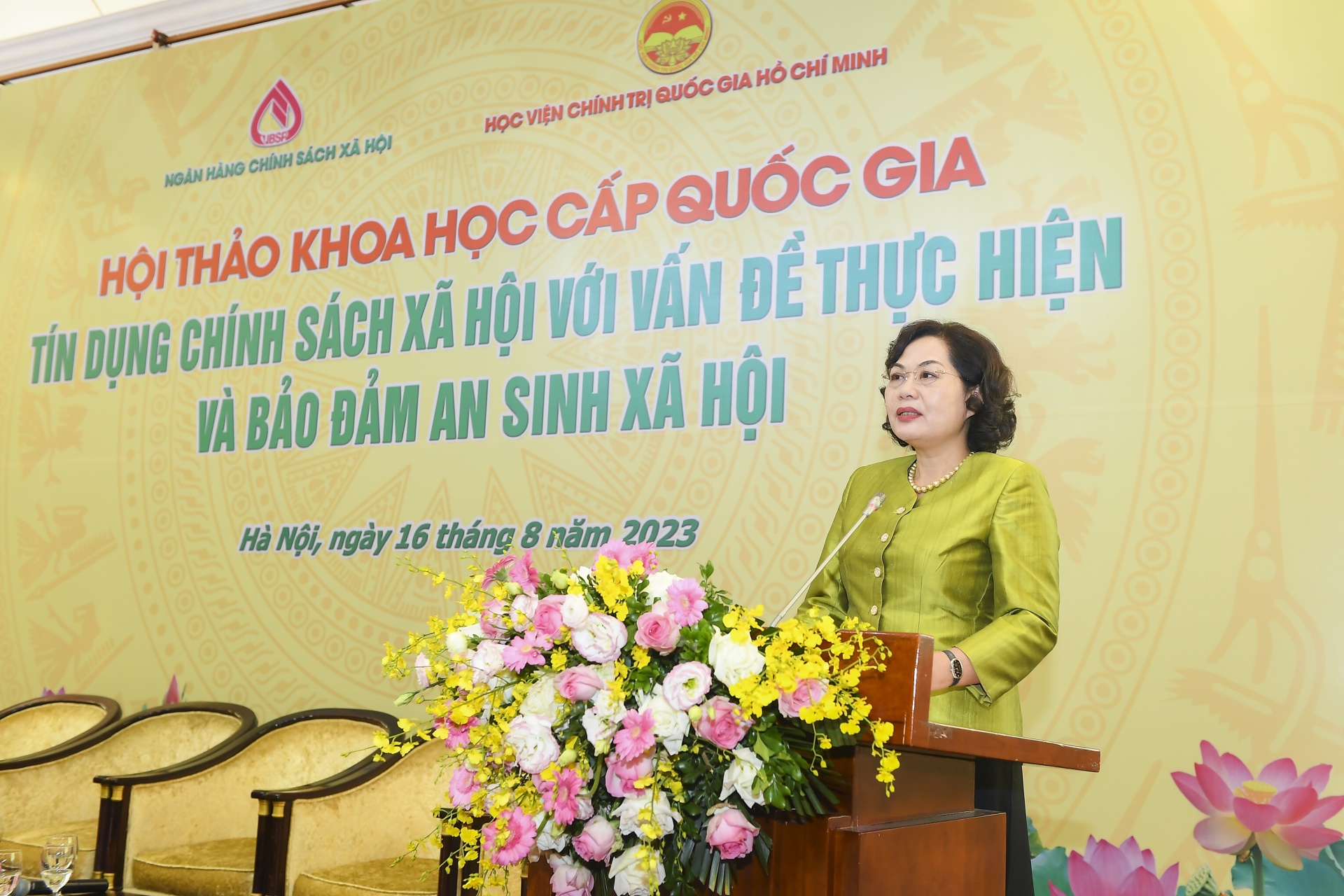 |
| VBSP chairwoman Nguyen Thi Hong giving her remarks at the seminar |
At the seminar, Hong noted that the government has enacted various decrees and decisions for the implementation of 26 policy credit programmes at VBSP, creating an inclusive regulatory system on poverty reduction that covers a wide range of social policy beneficiaries.
“Simultaneously, the lending objectives have been diversified to boost the efficiency of both Party and state policies for sustainable poverty reduction to ensure social wellbeing,” said Hong.
She cited that one of the most important targets set in VBSP’s Development Strategy for 2030 is that all needy people will be able to meet their needs by accessing the financial products and services provided by VBSP.
Difficulties and solutions
Despite these achievements, Thang from the HCMA believes that many difficulties still persist with the implementation of policy credit programmes, including finite capital sources when compared to people’s actual demands.
“In some localities, the entrusted capital sources from the local budget are low. In addition, the current resources that cater to realising the poverty reduction target remain unfocused, as they are yet to be concentrated into one agency such as VBSP,” said Thang.
Regarding this issue, Nguyen Van Hoi, Deputy Minister of Labour, War Invalids and Social Affairs, revealed that even though the limit has been revised many times, the lending levels of several programmes are still low and fail to support the borrowers effectively.
At the seminar, Duong Van Thai, Secretary of Bac Giang Party Committee, proposed that the government should consider raising the lending limit under the policy credit programme on clean water and sanitation facilities in rural areas from the current VND10 million ($420) to VND30 million ($1,265) per project.
In another case, Le Van Han, Chairman of Tra Vinh People’s Committee, suggested an extension to the loan duration for households that have just been removed from the poverty list to five years, helping them to develop businesses and ensure the long-term benefits.
Hau A Lenh, Minister and Chairman of the National Assembly Committee for Ethnic Minority Affairs, proposed raising the scope of VBSP.
Accordingly, resources would be focused on efficiently expediting credit programmes, in which central budget capital plays a key role.
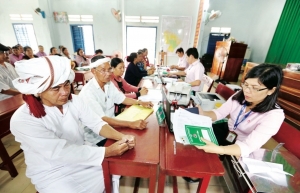 | VBSP: 20 years on the journey of poverty reduction Over the 20 years of its establishment and development, Vietnam Bank for Social Policies (VBSP) has promoted its role as an economic leverage tool for the government to help the poor and other policy beneficiaries gain access to policy credit to develop production, create jobs, raise incomes, and improve living conditions. |
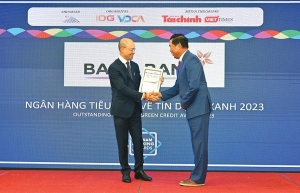 | Greener credit headlining BAC A BANK’s modernisation For nearly 30 years, BAC A BANK has been underlining the importance of nurturing sustainable development via its green credit activities and taking good care of its staff. |
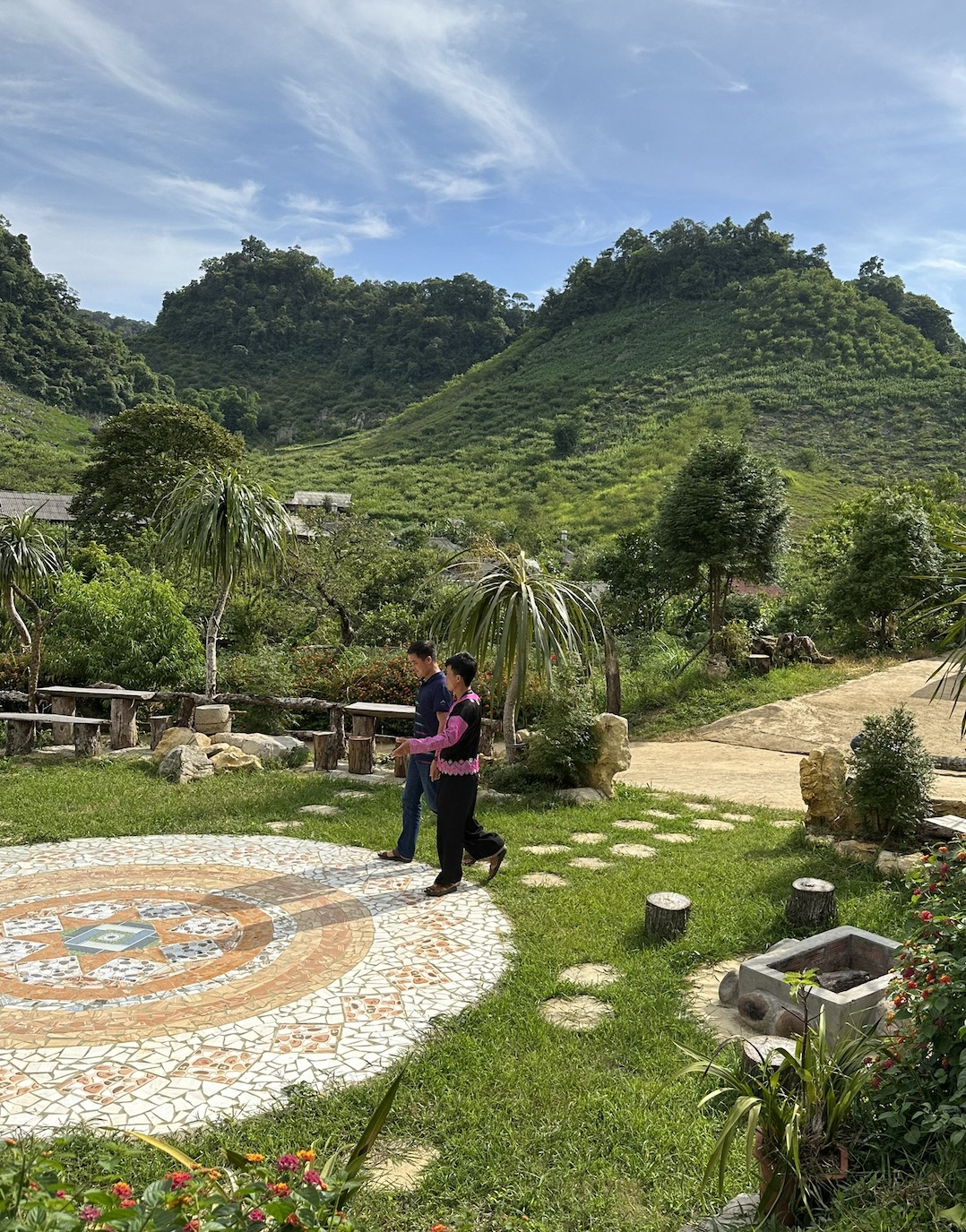 | Policy credit provides fulcrum to elevate ambitions The funding that supports employment creation by Vietnam Bank for Social Policies (VBSP) has had a positive influence on the use of seasonal workers in Son La province, contributing to altering their subsistence way of life and improving living standards. |
What the stars mean:
★ Poor ★ ★ Promising ★★★ Good ★★★★ Very good ★★★★★ Exceptional
Related Contents
Latest News
More News
- Nestlé Vietnam's Lunar New Year campaign reframes how Tet is counted (January 28, 2026 | 11:40)
- Tet event in Japan celebrates success of 14th National Party Congress (January 25, 2026 | 10:04)
- 14th National Party Congress wraps up with success (January 25, 2026 | 09:49)
- Congratulations from VFF Central Committee's int’l partners to 14th National Party Congress (January 25, 2026 | 09:46)
- List of newly-elected members of 14th Political Bureau announced (January 23, 2026 | 16:27)
- 14th Party Central Committee unanimously elects To Lam as General Secretary (January 23, 2026 | 16:22)
- List of members of 14th Party Central Committee announced (January 23, 2026 | 09:12)
- Highlights of fourth working day of 14th National Party Congress (January 23, 2026 | 09:06)
- Press provides timely, accurate coverage of 14th National Party Congress (January 22, 2026 | 09:49)
- Press release on second working day of 14th National Party Congress (January 22, 2026 | 09:19)

 Tag:
Tag:


























 Mobile Version
Mobile Version